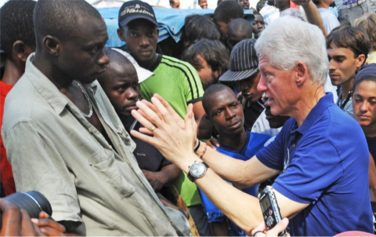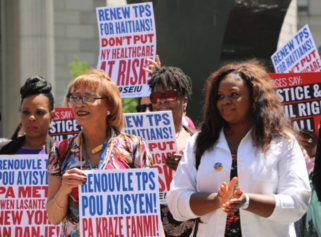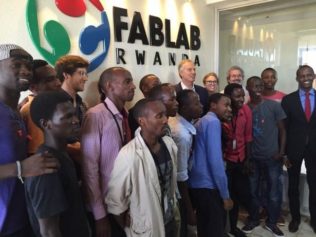Haiti’s president and prime minister were on the road this week, making pitches to the world business community with the same primary message: Invest in Haiti.
Prime Minister Laurent Lamothe was in Davos, Switzerland, at the World Economic Forum, where he told the CEOs and heads of state gathered that Haiti, one of the poorest countries in the Western Hemisphere, has suffered from a reputation as a corrupt, inefficient nation. But he said this misperception has masked something else: It is also a land of opportunity.
“I think the perception of bad governance in Haiti has kept people away,” said Lamothe, 40, a former telecom entrepreneur who graduated from Barry University in Miami. “That in itself creates an opportunity, because we are one of the few destinations with unspoiled beaches, with white sand, coconuts everywhere and year-round sun.”
With 52 percent of the population living on less than a dollar a day and with an average per capita income of $750 a year, Haiti is desperate for investment in its economy just three years after the devastating earthquake. Lamothe pointed out that Haiti’s gold-mining industry is relatively untapped, and there is much opportunity in agriculture, textiles and tourism.
Lamothe said Haitians are anxious to get to work. “In a structured environment, Haitians do very well. We are good at getting an opportunity and making the most of it,” he said. “The best way to invest is to come and open a factory in Haiti, or invest in the tourism sector, open a hotel.This is what we are looking for. This is a vibrant market of 10 million people.”
While Lamothe was in Davos, Haitian President Michel Martelly was in Santiago, Chile, selling the same message at the first summit between the Community of Latin American and Caribbean States (CELAC) and the EuropeanUnion (EU).
Martelly said Haiti has “strong potential just waiting to be uncovered,” in areas like agriculture, tourism and construction. He called for renewed investment in the region and a “definitive” eradication of poverty.
“For a new world, there must be a new vision,” he said.
After Lamothe received his degree in the United States, he started a telecom firm but returned to his native country to help make a difference when his friend, music sensation Michel Martelly, became president not long after the devastating earthquake.
Neither man had any political experience before taking office, which is not necessarily a bad thing, Lamothe said, noting that political experience in Haiti was never a factor in good management. “We share a common vision for the country. We need to contribute what we have learned in the private, business sector, to give back to the country.”
Much of the aid offered up after 2010’s earthquake, which caused $12 billion in damage, never materialized. Lamothe said the task of finding homes for hundreds of thousands of Haitians has been daunting. He said they had the equivalent of 4,000 Olympic pools filled with rubble.
“The earthquake showed us only with solidarity, Haitian to Haitian, international community with Haiti … it showed our sense of resilience, pride, to be able to go through this tragedy and still be there, fighting for a better life.”


